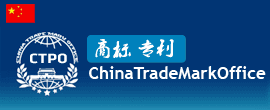On April 22, during the occasion of World IP day, SIPO jointly with SAIC and NCAC held a news conference in Beijing to publicize relevant information of China’s IP development in 2013. Liu Junchen, Vice Minister of SAIC attended the conference and answered questions there. The Conference was live webcasted by www.china.com.cn .
Liu Junchen expressed that the amendment to Trademark Law was based on China’s economic development necessities and raised new requirements to trademark registrations and administrations, which was the main emphasis to enhance, reform and improve future trademark works. After the implementation of new Trademark Law, trademark registration would be more convenient. The Law regulated nine months time limit for trademark examination and review, which for a world first, focused on examination and review lengthy period. AICs would therefore actively adjust and improve relevant procedures and work regulations, by promoting means of establishment of long term mechanism, electronic applications and etc, to safeguard legal time limit and to constantly facilitate trademark registration.
Liu Junchen pointed out the new Law provided a more effective way to administrate trademark registration, utilization and trademark agents’ actions. It, for one thing, brought well-known trademark legal system back to its original legislative intention. The protection to well-known trademarks is a legal system and an international convention, not an appraisal through comparison, nor an honorary title. Well-known trademark should insist in the principle of “individual determination and passive protection” to dilute its administrative color and to fully play the dominant roles of enterprises in brand cultivations. It, for another thing, strengthened the supervisions to trademark agencies. There were more than twenty thousand agencies in China, who involved in various trademark works where many irregular and illegal behaviors existed, such as malicious trademark registrations and free riding famous trademarks. Some of them also persuaded enterprises in registering marks without any intentions of use. AICs would continue regulating agencies’ behaviors. Agencies having serious illegal behaviors would be recorded in enterprises credit information publicity platform for public notification and would also be stopped the trademark applications by Trademark Office. AIC authorities would in accordance with State Council’s requirements to legally punish illegal behaviors and strictly control actions haggling over laws and regulations. It, for the third thing, further regulated trademark applications and utilizations. China’s trademark applications, registrations and registrations still in force had been ranked number one in the world for twelve consecutive years. But there were also serious phenomenon such as malicious registrations, malicious oppositions, free riding famous trademarks, valuing trademark registrations over real uses, accompanied with the huge trademark applications and registrations. The new Law therefore regulated series of measures including the principle of honesty and credibility, the prohibition on malicious trademark registrations, and the permission of continuing using of trademarks which priory used and had influence in their original areas. AICs would strictly enforce law in accordance with laws, and crack down unfair competitions such as malicious registrations and free riding famous trademarks.
Liu Junchen said AICs had achieved remarkable results in cracking down infringements and counterfeiting in recent years. In 2013, AICs investigated and prosecuted 83.1 thousand infringements and counterfeiting cases, with a total amount of RMB 1.121 billion involved, and destroyed 1786 sites where counterfeit and shoddy goods were produced and marketed. AICs also transferred 477 cases to judicial organizations, which involved RMB 280 million, accounting for 30% of all cases investigated by administrative authorities. Meanwhile, AICs strictly investigated series of major cases to effectively deter all kinds of criminals. However, infringements and counterfeiting remained in markets, which were even more serious in some regions. The new Law therefore added and improved measures to further strengthen the protections to trademark exclusive rights. It enlarged types of trademark infringement behaviors, strengthened the punishment to infringement behaviors, added stipulation on punitive damages, increased the amount of statutory damages, and relieved burdens of proof to trademark rights holders, etc. AICs would continue to keep current high pressures on trademark infringements to strengthen regional and departmental cooperation in trademark administrative enforcements, and to investigate and prosecute cross regional, large scale, seriously concerned cases. AICs would actively improve long term mechanism of cracking down infringements and counterfeiting, quicken the establishment and share of trademark administrative enforcement information platform, and promote the connection between administrative enforcement and judicial procedures. AICs would also in conformity with State Council’s requirements, practically publicize infringements and counterfeiting cases and make efforts to create a healthy and orderly market environment.

